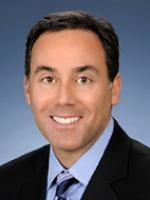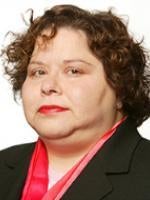On April 2, 2018, the US District Court for the Southern District of New York dismissed a proposed residential mortgage-backed securities (RMBS) class action against U.S. Bank, in its capacity as trustee ("U.S. Bank" or "Trustee"), for certain failed RMBS securitizations. In doing so, the Court affirmed that the RMBS trustee has limited contractual duties under the relevant Pooling and Servicing Agreement (PSA), and has no fiduciary duties in the absence of a default, and, even after default, the trustee's duties remain defined by the contract.
The MASTR Adjustable Rate Mortgage Trust 2006-OA2 ("Trust") holds over 5,600 first-lien, ARM loans. UBS Real Estate Securities Inc. (UBS) acquired the loans and then transferred and pooled them into the Trust. The Trust sold securitized interests in the mortgages as RMBS. Investors received distributions from the principal and interest paid by the loan borrowers.
The Trustee's duties are set forth in the PSA, which formed and governs the Trust. Among those duties, the PSA requires the Trustee to enforce UBS' obligations under the PSA to repurchase, replace or cure defective loans if UBS breaches a representation and warranty that materially and adversely affects the investors' interests. Plaintiffs alleged that the Trustee failed to comply with the PSA when it learned that UBS breached its representations and warranties relating to the underlying mortgage loans.
The PSA also sets forth duties of the Trustee against a separate entity—the master servicer. Under the PSA, the master servicer "supervises, monitors and oversees the performance of the Trust's individual mortgage loan servicers, and is responsible for depositing funds in the Distribution Account established by the PSA." (Op at 5 [Dkt 51].) The PSA defines certain failures by the master servicer as a Master Servicer Event of Termination (MSET). MSETs are events of default under the PSA.
Plaintiffs alleged that the occurrence of an MSET gives rise to a "quasi-fiduciary" duty of the Trustee. Plaintiffs further alleged that an MSET occurred and remained uncured when the master servicer failed to deposit amounts required under the PSA into the Trust. Plaintiffs also alleged that the Trustee failed to enforce remedial measures in the PSA against the master servicer following the alleged MSET.
Plaintiffs' allegations were pled in five counts, all of which the Court dismissed: (1) Breach of Contract (PSA); (2) Breach of a Duty of Trust; (3) Breach of Implied Covenant of Good Faith and Fair Dealing; (4) Violation of New York's Streit Act; and (5) Breach of Fiduciary Duty. Plaintiffs claimed that the Trustee's failures and alleged breaches caused them to suffer damages relating to loans totaling more than $2 billion principal amount.
The Court rejected Plaintiffs' predicates for liability, both as to the Trustee's alleged failures regarding UBS and as to the master servicer. Regarding the Trustee's alleged failure to take action against UBS, perhaps the Court's most significant finding was that the Trustee did in fact take action by pursuing claims against UBS for alleged breaches of representations and warranties. The Court noted that Plaintiffs' allegations "fail to account for U.S. Bank's role as plaintiff in the pending action [against UBS] pending before the undersigned." (Op. at 18.) The Court also noted that the Plaintiffs did not allege that the lawsuit's timing harmed them or that there was any particular obligation of the Trustee to bring the action within a particular timeframe. (Op at 19.) Thus, the Court declined to find a breach of the Trustee's contractual duties under the PSA to provide notices to UBS and enforce the PSA's remedial provisions against UBS.
The Court noted that each of the claims is premised on the existence of a MSET, but found that "the Complaint does not plausibly allege facts that show an MSET." (Op. at 17.) The Court focused on differences among the various capacities in which a party can act (e.g., master servicer, custodian, trust administrator). Here, plaintiffs asserted master servicer breaches, but the conduct at issue was the responsibility of the trust administrator and not the master servicer. The Court acknowledged, but was unpersuaded by, the fact that one party serves as both master servicer and trust administrator and refused to conflate the two.
In dismissing the breach of duty of trust claim, the Court invoked the economic loss doctrine, which bars tort claims based on failures to perform under a contract. The Court found that plaintiffs were merely repackaging the breach of contract claim and that the underlying claim was "premised on U.S. Bank's alleged failure to perform under the PSA…." (Op. at 21.) More importantly for trustees, the Court held that because the PSA itself established a "duty of prudence" in the event of a default, any claim directed at that duty is contractual in nature, not "an independent fiduciary duty." (Op. at 25.) In support of its ruling, the Court also noted that, generally, a trustee owes no fiduciary duty absent an event of default.
Finally, the Court observed that the PSA expressly disavows any implied duties of the Trustee in the absence of an MSET, and cited cases enforcing such provisions. (Op. at 23.) As noted, the Court declined to find an MSET, effectively mandating that the good faith claim based on such an MSET be dismissed.
The Court's rulings support and reinforce the significance of relying on the specific language of the contract, rather than more vague allegedly implicit fiduciary duties, for the clear delineation of the roles and duties of contract parties prior to default. In doing so, it made clear that trustees who fulfill their contractual obligations are not sureties for other parties in a contract who do not do so. In the same way, the Court's ruling reaffirms the distinction between a corporate trustee (whose duties are defined, not by a fiduciary relationship, but a contract) and a common law trustee (whose duties are fiduciary). The duties of a corporate trustee have a nature and scope consistent with the limited information and the levels of compensation trustees receive.
Trustees will welcome the Court's rejection of efforts by plaintiffs to expand trustees' duties. Nevertheless, those efforts continue against trustees (particularly in RMBS actions), so trustees are well served to continue consulting counsel regarding such matters especially upon an event of default or potential event of default.






 />i
/>i
